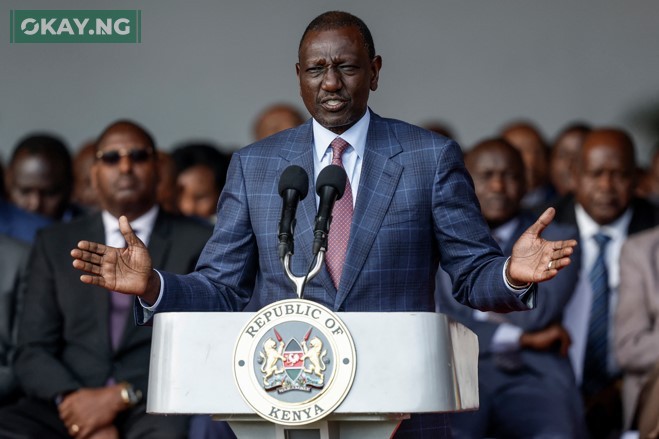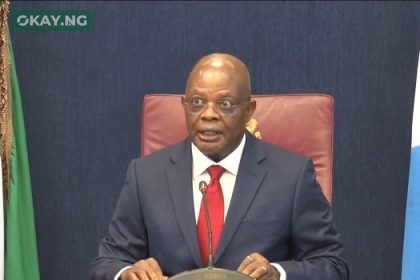Kenyan President William Ruto has sparked renewed controversy after donating $150,000 to a Nairobi church, just months after condemning such contributions as fueling corruption. His pledge of 20 million shillings to the Jesus Winner Ministry Church led to protests, with demonstrators demanding the return of what they called “stolen taxpayer money.” Police responded with tear gas, escalating tensions over an issue that has become increasingly divisive in Kenya.
Church donations and fundraisers are a long-standing tradition in the country, often serving as a platform for politicians to connect with voters. However, the practice has faced growing scrutiny since mass protests erupted last year against tax hikes, corruption, and police brutality. In June 2023, Ruto himself banned government officials from participating in such fundraisers, warning that they enabled graft. Yet, his recent donations—including another 20 million shillings pledged at a separate church in Eldoret—have drawn accusations of hypocrisy.
Critics question the source of the funds, with activists like Mwabili Mwagodi of the “Occupy Church” movement demanding transparency. The movement, which seeks to separate religion from politics, gained momentum after churches remained silent during anti-government protests. Pressure from activists even led the Catholic Church of Kenya to reject a donation from Ruto, highlighting the deepening divide over political influence in religious spaces.
While some defend the president’s contributions as acts of faith, others see them as thinly veiled attempts to secure voter loyalty. Legal experts and activists warn that such donations could facilitate money laundering, with churches acting as intermediaries for political financing. The National Council of Churches of Kenya has since barred politicians from making speeches or announcing donations during services, but Ruto has defiantly vowed to continue supporting churches.
The debate reflects broader concerns about the intersection of religion and politics in Kenya. Reverend Timothy Njoya, a prominent activist preacher, has condemned the trend, accusing politicians of turning churches into “graveyards of spiritualism” and clergy of “selling their members for votes.” As the 2027 elections approach, the tension between faith-based patronage and democratic accountability remains unresolved, leaving many Kenyans questioning whether their leaders serve God or their own political ambitions.












